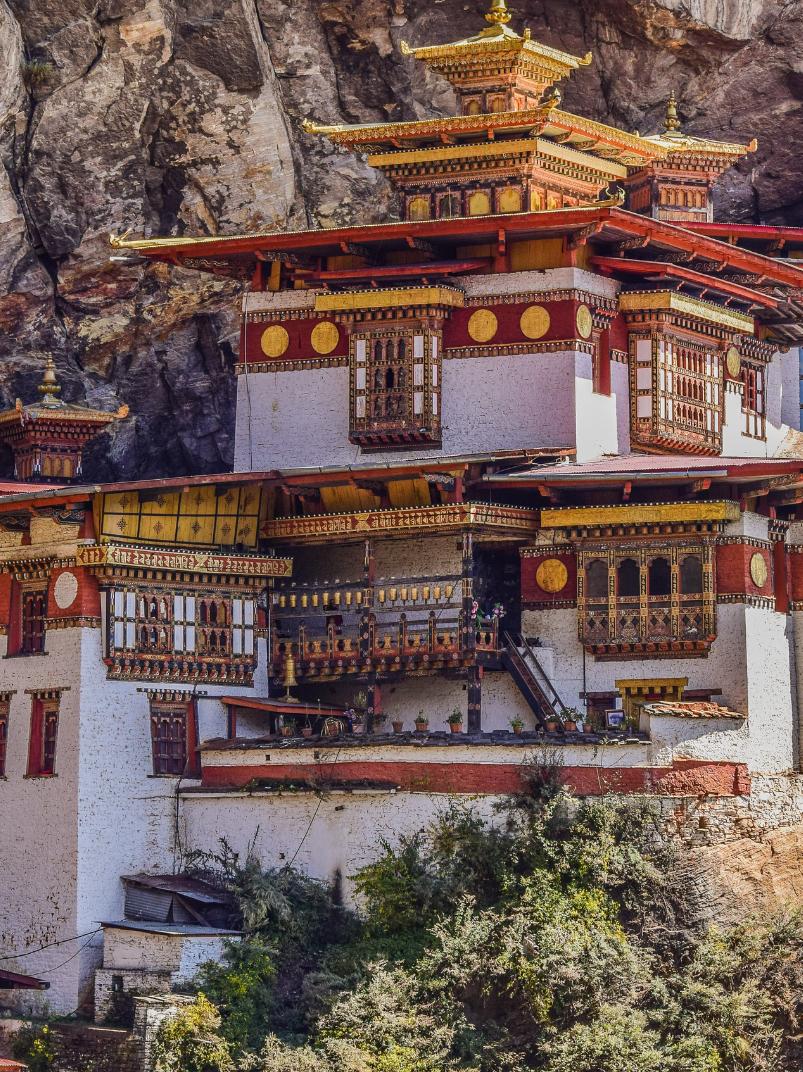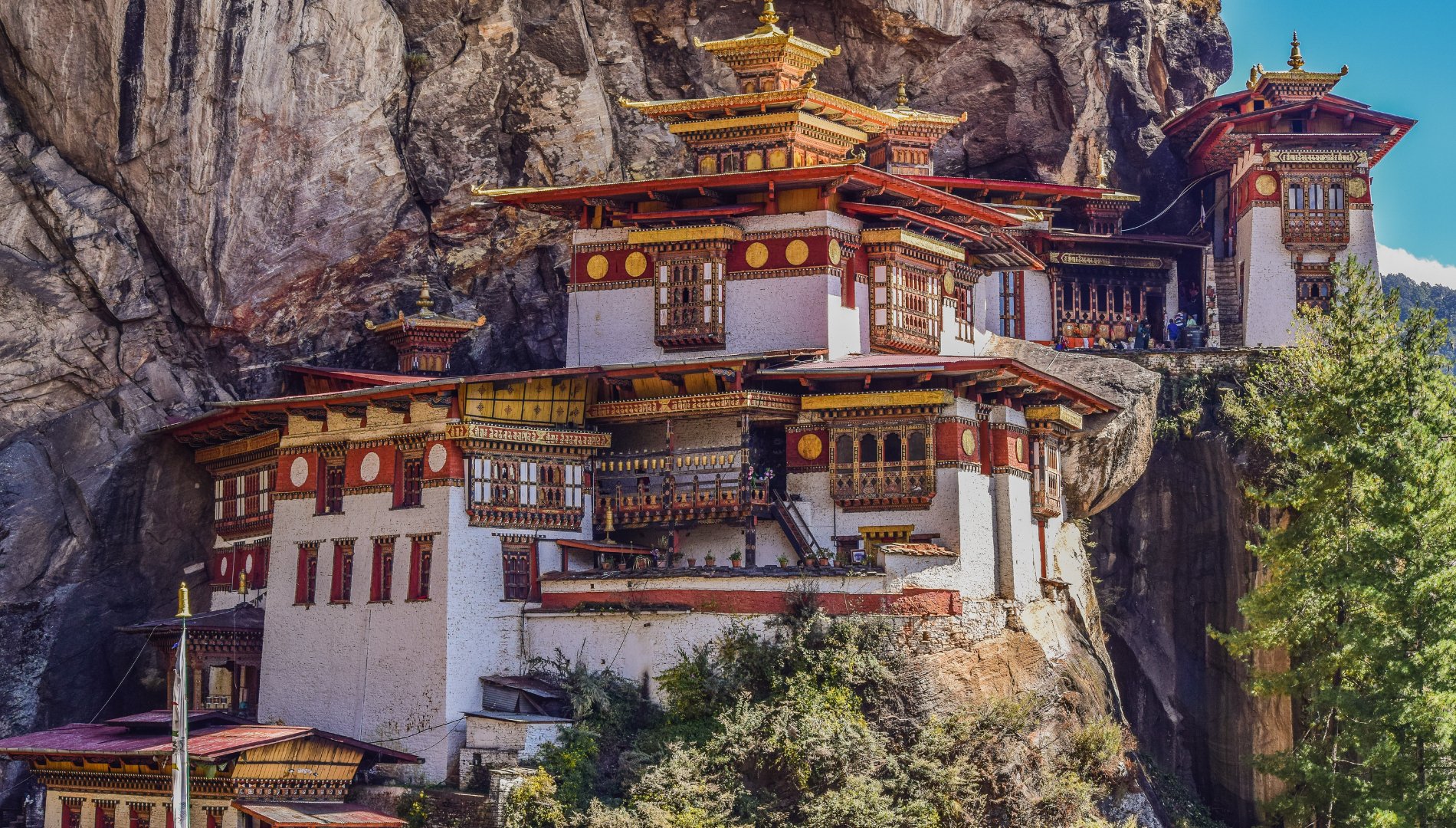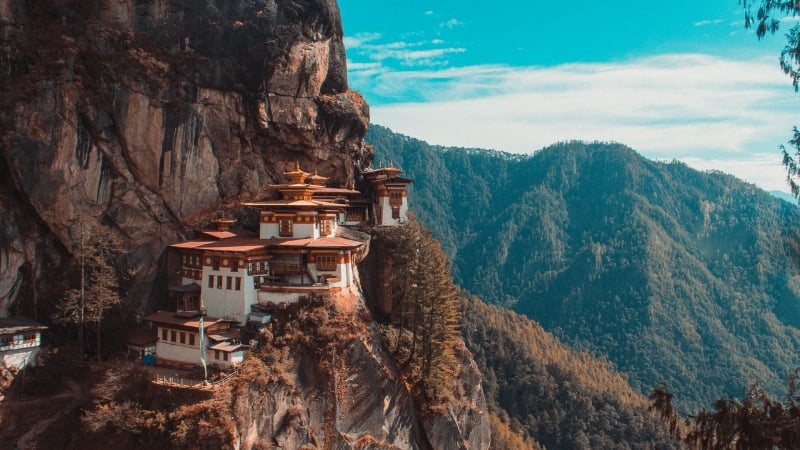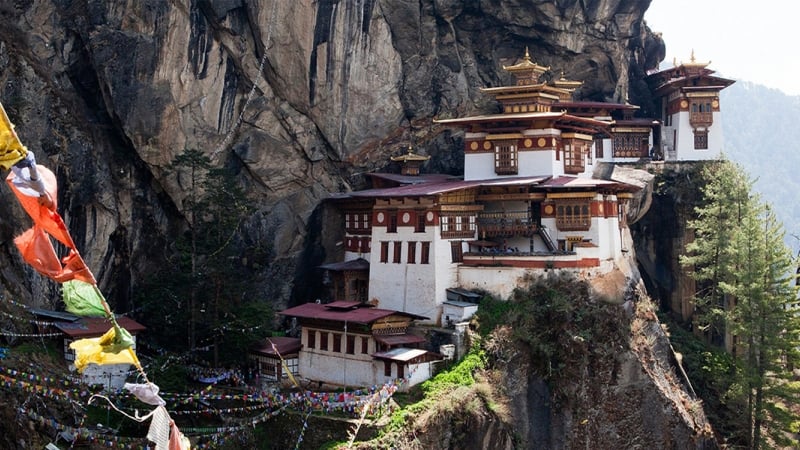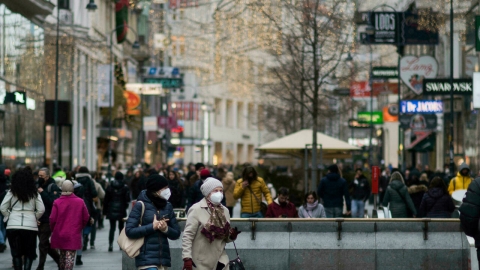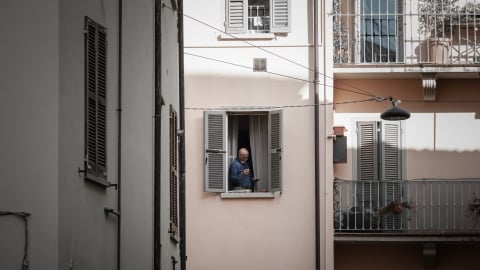The capital city has no traffic lights.
Bhutan is one of the few countries in the world without traffic lights. In the capital, Thimphu – the city with the highest traffic volume – police are stationed at major intersections to regulate traffic.
In Bhutan, traffic is still controlled by police officers standing in brightly decorated platforms resembling shrines, and this is the only gas station in Thimphu.
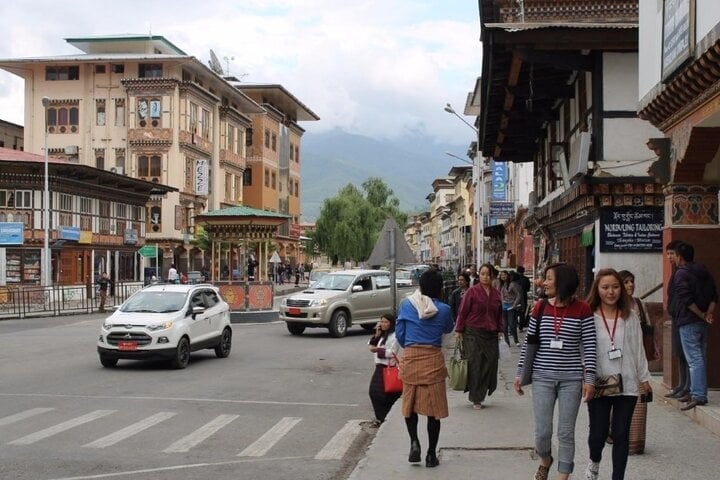
The only country in the world without traffic lights is located in South Asia, bordering two large countries, India and China.
Many people visiting Thimphu in Bhutan have a common question: "Why doesn't this city have traffic lights?" This is because the democratization process has brought about a series of advancements to the capital city of Thimphu.
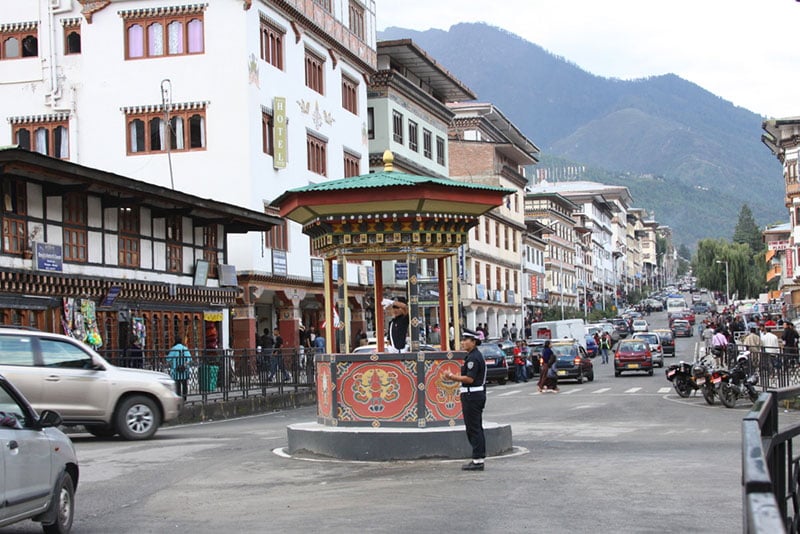
Instead of using traffic lights, traffic police will direct traffic on the road at checkpoints.
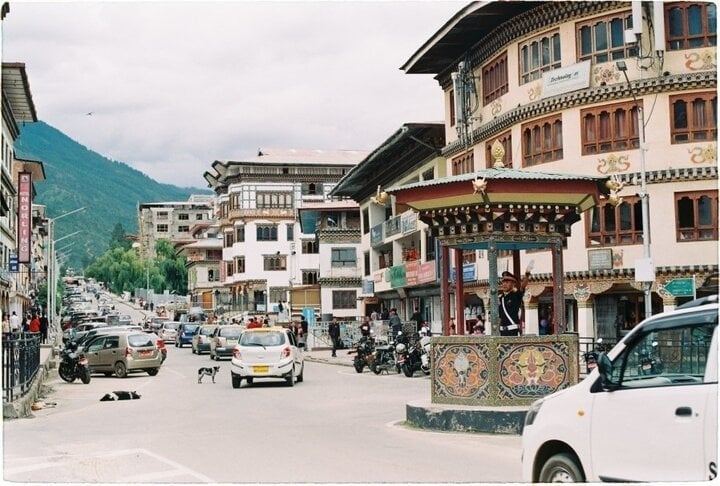
Unlike elsewhere, the movements of traffic police here are not decisive and clear, but rather graceful and fluid, like a dance. Yet, traffic participants in Thimphu still obey them without question.
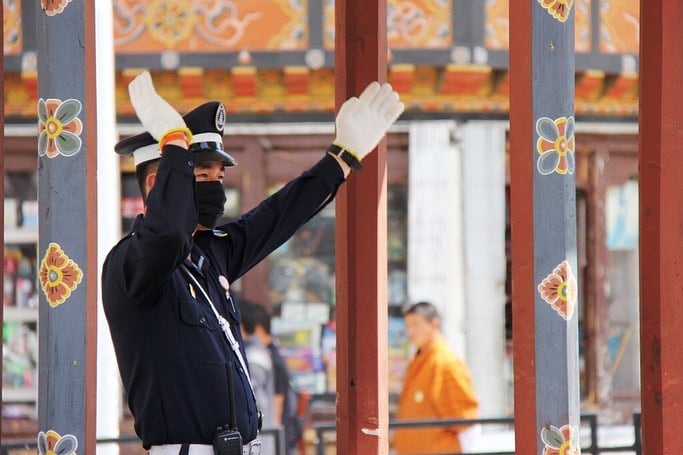
Beautiful boots in a place without traffic lights.
The mountainous kingdom spans 47,000 square kilometers.2This country was once one of the most isolated in the world, where tourism and external influences remained entirely state-controlled to preserve traditional Tibetan Buddhist culture.
The brightly decorated platforms for traffic police in the city center have even become a "symbol" of Bhutan's capital, a popular spot for tourists to take souvenir photos. This also explains why the city doesn't use traffic lights, a question frequently asked by tourists.
Currently, the Kingdom of Bhutan, with a population of 672,000, has as many as 30,000 cars. To avoid traffic congestion in the capital Thimphu and to provide convenience for tourists traveling in Bhutan, a team of 30 police officers takes turns controlling the number of vehicles moving around the city.
In Bhutan, there are no automated parking systems. Simply turning off your car for a short time will result in a staff member collecting a parking fee of 30 ngultrum (approximately $0.50 USD) per hour.
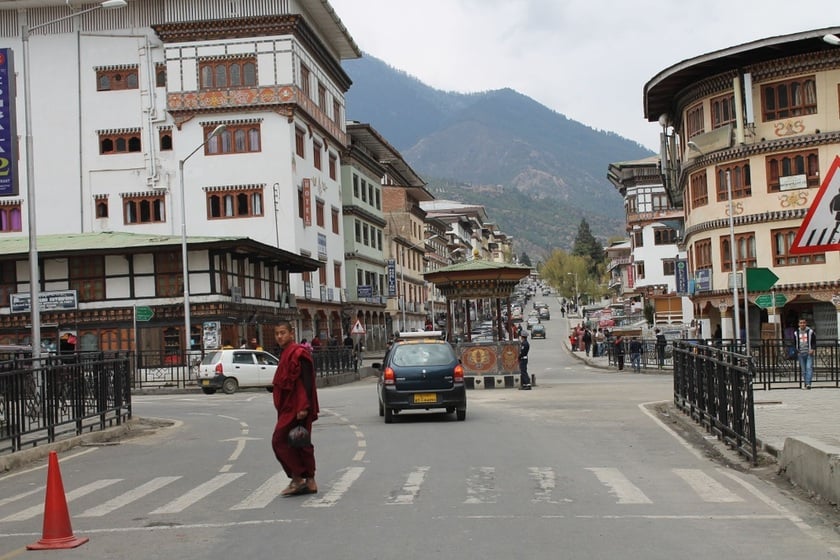
Getting around in this country is not easy.
Those who violate traffic laws will be severely punished. Speeding and reckless driving will result in a fine of approximately $5 USD. Drunk driving will be fined up to $25 USD, a seemingly small amount, but equivalent to one-fifth of the average monthly salary in Bhutan. A third offense will result in the driver's license being revoked permanently.
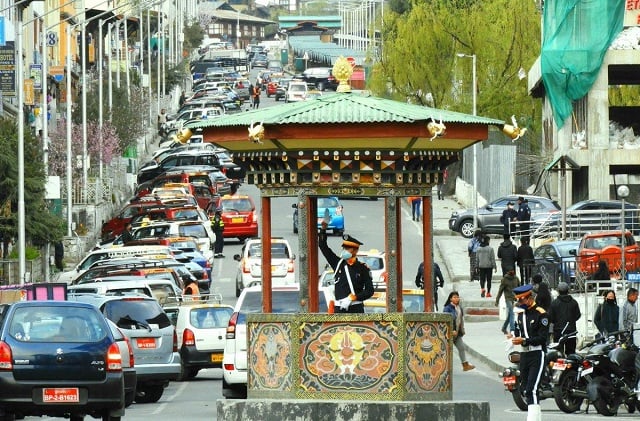
Bhutan's complex traffic situation.
Speed limit signs are unnecessary in Bhutan's capital because the roads are narrow and winding due to the mountainous terrain. On such roads, it is difficult to exceed the permitted speed of 45 km/h for cars and 35 km/h for trucks. Bhutan has only recently built a two-lane highway, where the speed limit is 50 km/h.
The people of Bhutan do not have surnames, only given names.
Typically, a person's name consists of a surname and a given name. Each individual's family or lineage is partly determined by their surname. However, this is not the case in Bhutan. Each person has two given names side-by-side, rather than a surname and a given name.
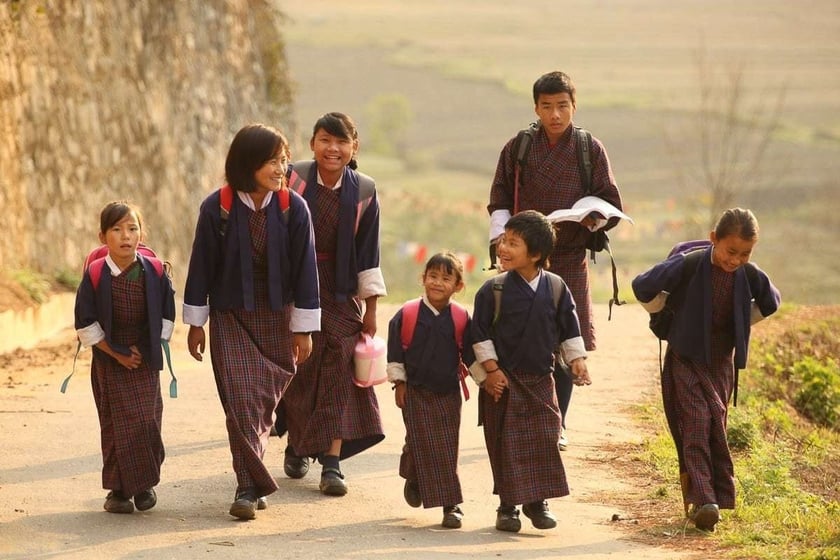
Despite being the happiest kingdom in the world, Bhutan still retains unique cultural characteristics.
Some parents don't name their children but wait for an auspicious day to take them to a temple to receive a blessing and a name from a priest.
In other words, Bhutan is a country without kinship. Each child in a family has a different name, and outsiders cannot determine whether they were born of the same parents. For example, the father of Bhutanese Queen Jetsun Pema is named Dhondup Gyaltshen, her mother is Sonam Chuki, while her two brothers are called Thinlay Norbu and Jigme Namgyal, and her two sisters are Serchen Doma and Yeatso Lhamo.
The custom of having two given names and no surname in Bhutan reflects the country's unique cultural identity. It is deeply rooted in Buddhist beliefs, history, and long-standing traditions. This naming system contributes to Bhutan's distinctiveness and attracts tourists.
The system of naming with two names and no surname in Bhutan is a unique and interesting cultural feature. It reflects the history, beliefs, and identity of the Bhutanese people. If you have the opportunity to visit Bhutan, take the time to learn about this custom to gain a deeper understanding of the country's culture.
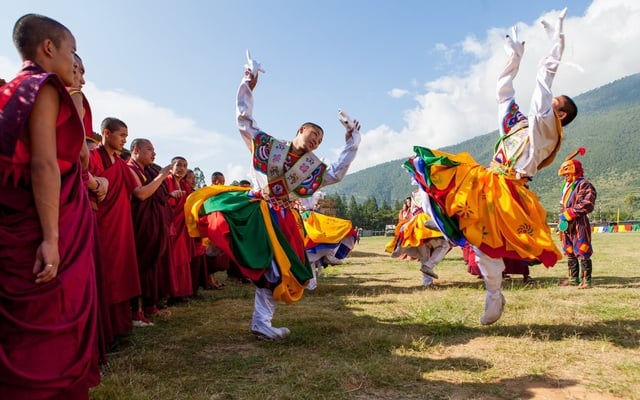
Bhutan is renowned as the happiest country in the world. Besides its high happiness index and pristine nature, this nation holds many other surprises. The warm and hospitable people of Bhutan welcome tourists with open arms. The beautiful temples evoke a sense of peace and appreciation for life. These are unforgettable experiences when you visit this special land.

 VI
VI EN
EN



